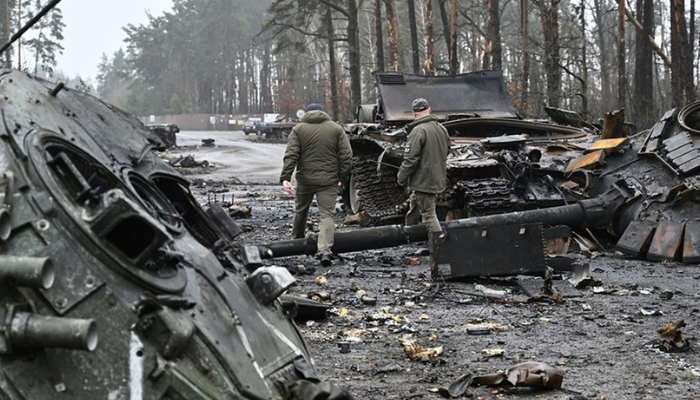In recent years, the term Guerre en Ukraine has become synonymous with one of the most critical geopolitical crises in Europe. The Ukraine conflict, as it is known in English, encompasses a complex interplay of history, politics, and regional ambitions.
This article seeks to unravel the intricacies of this situation, highlighting key events, underlying motivations, and its broader implications for global politics.
Historical Roots
The historical relationship between Ukraine and Russia is long and convoluted. Historically part of the Russian Empire and subsequently the Soviet Union, Ukraine declared independence in 1991. However, their shared history has continuously influenced the dynamics between the two nations.
The Annexation of Crimea
A pivotal moment in the Ukraine conflict was Russia’s annexation of Crimea in 2014. Claiming a historical connection and following a controversial referendum, Russia incorporated Crimea, triggering international outrage and leading to a series of sanctions against Moscow.
Eastern Ukraine and the Donbass Region
Parallel to the Crimean issue, pro-Russian sentiments in Eastern Ukraine led to separatist movements, particularly in the Donbass region. The Ukrainian military and separatist factions have clashed repeatedly, resulting in significant casualties and displacement.
International Stakeholders and Involvement
The Guerre en Ukraine isn’t just a regional conflict. Major powers, including the U.S., EU, and NATO, have taken keen interests, either in support of Ukraine’s sovereignty or cautioning against further escalation.
The Minsk Agreements
Designed to halt the conflict in Eastern Ukraine, the Minsk agreements (both I and II) laid out steps for a ceasefire and a political solution. However, their implementation has been rocky, with both sides accusing the other of violations.
Economic Implications
Sanctions against Russia and the general instability have had vast economic repercussions. Ukraine’s economy, heavily reliant on its eastern industrial base, has suffered. Conversely, Russia has sought to pivot its economic dependencies to the East, especially China.
Humanitarian Crisis
Beyond politics and economics, there’s a dire humanitarian aspect. Thousands have died, and even more have been displaced. The ongoing conflict has disrupted normal life, making access to essentials challenging.
Propaganda and Information War
One cannot discuss the Guerre en Ukraine without addressing the propaganda war. Both sides have been accused of spreading disinformation. The battle is not just on the ground but also in the realm of public opinion, with media narratives playing a crucial role.
Future Implications for Europe and NATO
Ukraine’s conflict has reshaped the dynamics within Europe. There’s a renewed discussion on NATO’s role, European defense capabilities, and how the continent should approach Russia. The conflict has also underscored Europe’s energy dependencies, leading to efforts to diversify sources.
Peace Prospects
Is there an end in sight? Numerous rounds of talks, ceasefires, and diplomatic efforts have yielded limited success. However, peace is a mutual interest. The toll on both economies and the shared history might eventually pave the way for reconciliation.
Broader Geopolitical Ramifications
The conflict reverberates beyond Ukraine and Russia. It’s a litmus test for international law, sovereignty, and the future of regional dynamics. For countries in Russia’s vicinity, it serves as a stark reminder of the complexities involved in diplomacy and defense.
Cultural and Societal Impact
The conflict has also left an indelible mark on the people and cultures involved. Families are torn apart, narratives of nationalism have surged, and there’s a renewed sense of identity, both in Ukraine and Russia.
The Role of Technology
Modern warfare isn’t limited to traditional weaponry. Cyberattacks, drone warfare, and digital espionage have been integral to the Ukraine conflict. Their use underscores the changing face of global conflicts in the 21st century.
Environmental Concerns
The prolonged conflict has had environmental implications. From the destruction of infrastructure leading to pollution to the direct environmental costs of warfare, the region faces long-term challenges that extend beyond the immediate conflict.
Conclusion
The Guerre en Ukraine is more than just a regional skirmish. It’s a reflection of historical grievances, modern geopolitical ambitions, and the challenges of the contemporary global order.
As observers, it becomes crucial to understand these nuances to appreciate the gravity of the situation and hope for a peaceful resolution that respects the rights and aspirations of the Ukrainian people.

















Comments